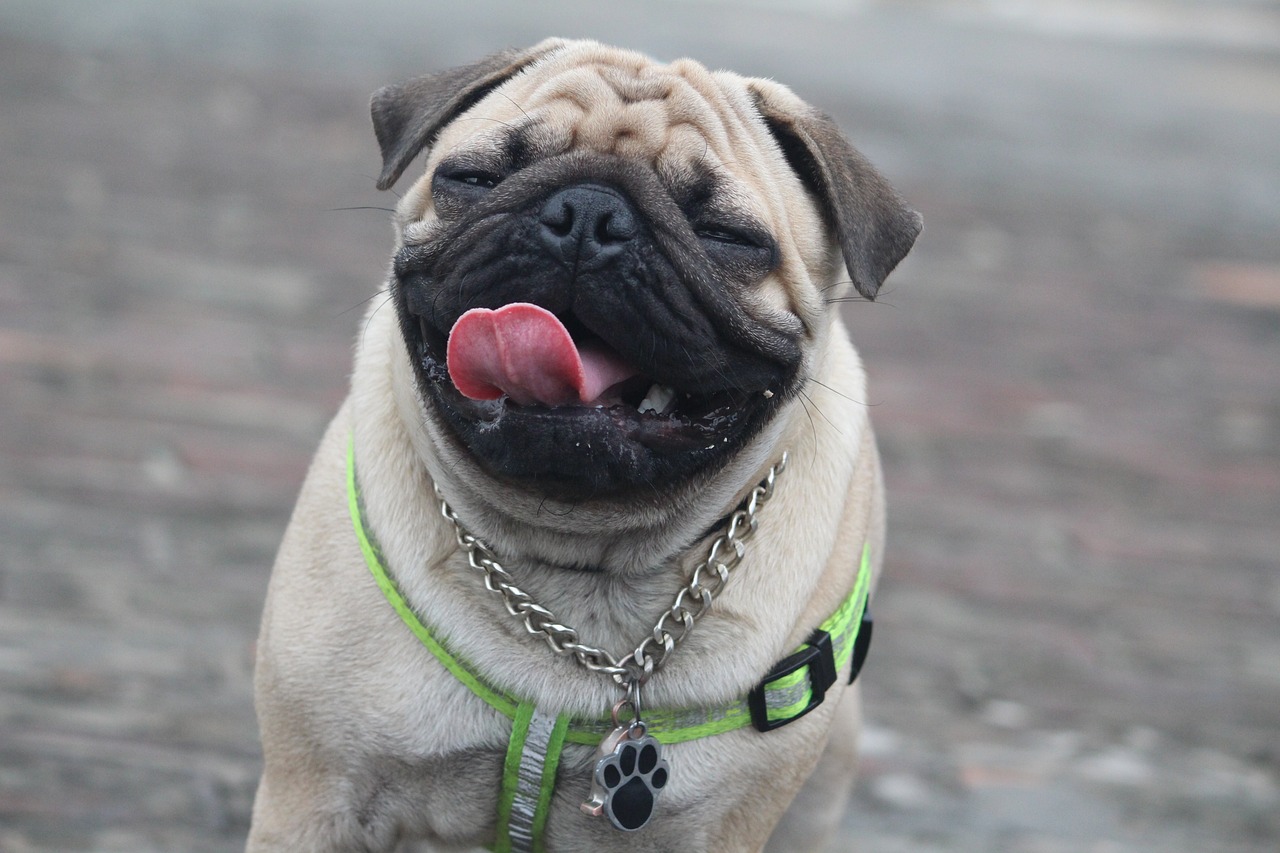The Schnauzer, a breed distinguished by its robust physique, distinctive beard, and eyebrows, and spirited personality, is cherished by dog lovers around the globe. Originating from Germany, Schnauzers come in three sizes: Miniature, Standard, and Giant, each possessing unique traits but sharing a common ancestry. These intelligent and versatile dogs have served various roles throughout history, from farm work and guarding to companionship. Schnauzers are known for their loyalty, protective nature, and high energy levels, making them excellent family pets and watchdogs. The lifespan of a Schnauzer varies by size, with Miniature Schnauzers typically living 12 to 15 years, Standard Schnauzers around 11 to 14 years, and Giant Schnauzers around 10 to 12 years. Despite their generally robust health, Schnauzers, like all breeds, face specific health challenges that can impact their longevity. Understanding these potential issues is crucial for owners who wish to provide the best care for their Schnauzer companions.
Lifespan Expectancy of a Schnauzer
Schnauzers are generally considered to be healthy dogs with a relatively long lifespan compared to other breeds. Miniature Schnauzers have the longest lifespan among the three, often living into their early to mid-teens. Standard Schnauzers follow closely, with a slightly shorter lifespan, while Giant Schnauzers tend to have the shortest lifespan due to the general rule that larger dog breeds tend to have shorter lives. The key to maximizing a Schnauzer’s lifespan includes proper nutrition, regular veterinary care, adequate exercise, and genetic health screening, especially for breed-specific issues.
Common Health Challenges in Schnauzers
Schnauzers, irrespective of their size, are prone to certain health conditions that can affect their quality of life and potentially shorten their lifespan. Owners should be aware of these common issues to ensure early detection and treatment.
Pancreatitis
Pancreatitis, an inflammation of the pancreas, is notably prevalent in Miniature Schnauzers. This condition can be acute or chronic and is often related to dietary indiscretions, obesity, or genetic predisposition. Symptoms include vomiting, abdominal pain, and lethargy. Management includes dietary modification and, in severe cases, hospitalization for supportive care.
Hip Dysplasia
Hip dysplasia is a genetic condition more commonly observed in larger breeds but can affect Standard and Giant Schnauzers. It results from a malformation of the hip joint, leading to arthritis and pain. Maintaining a healthy weight and using joint supplements can help manage symptoms, with surgical options available for severe cases.
Schnauzer Comedone Syndrome
Schnauzer Comedone Syndrome, also known as “Schnauzer bumps,” is a skin condition unique to the breed, characterized by the formation of blackheads and pimples along the dog’s back. Regular grooming and veterinary-prescribed medicated shampoos can help manage this condition.
Myotonia Congenita
Myotonia Congenita is a hereditary muscle disorder seen in Miniature Schnauzers, causing muscle stiffness and enlargement. While it does not typically shorten a dog’s lifespan, it can affect their quality of life. Treatment is symptomatic and may include medications to manage muscle stiffness.
Dental Issues
Dental health is a concern for all three sizes of Schnauzers, with the breed being prone to periodontal disease. Regular dental care, including brushing and professional cleanings, can prevent serious complications associated with dental disease.
Eye Conditions
Schnauzers can inherit several eye problems, such as cataracts and progressive retinal atrophy, potentially leading to vision loss. Annual eye exams by a certified veterinary ophthalmologist can help catch and treat these conditions early.
Understanding and addressing these health challenges through proactive medical care, a balanced lifestyle, and regular check-ups can help ensure that Schnauzers enjoy a long, happy, and healthy life. Owners who invest time and effort into the well-being of their Schnauzer can look forward to many rewarding years with their loyal companions.
How Can I Extend the Lifespan of My Schnauzer?
Extending the lifespan of a Schnauzer encompasses a holistic approach to their health, happiness, and overall well-being. Schnauzers, known for their distinctive bearded appearance and vibrant personality, come in three sizes: Miniature, Standard, and Giant, each with its own set of characteristics and care requirements. These intelligent and spirited dogs are not only for their companionship but also for their agility and versatility in various canine roles. A Schnauzer’s lifespan can be significantly influenced by genetics, lifestyle, and the care they receive from their owners. By focusing on proper nutrition, regular exercise, preventive healthcare, and addressing the breed-specific health challenges they may face, owners can enhance their Schnauzer’s quality of life and potentially extend their years together. This detailed guide will explore practical strategies for caring for a Schnauzer, aiming to provide owners with the knowledge to nurture their pet’s health and maximize their time with these remarkable dogs.
Regular Veterinary Check-ups
Regular veterinary check-ups are crucial for maintaining a Schnauzer’s health and extending their lifespan. These visits allow for early detection and management of potential health issues, vaccinations to prevent infectious diseases, and guidance on diet, exercise, and dental care. Annual wellness exams, coupled with routine blood tests and screenings, can help identify conditions like pancreatitis, hip dysplasia, and dental disease early, allowing for timely intervention and treatment.
Optimal Nutrition
Feeding your Schnauzer a balanced, high-quality diet tailored to their age, size, and energy level is essential for their overall health. Nutritional needs vary among the Miniature, Standard, and Giant Schnauzers, so consulting with a veterinarian to determine the best diet plan is recommended. Avoiding obesity by controlling portion sizes and limiting treats can help prevent related health issues, such as diabetes and joint problems, thereby extending their lifespan.
Adequate Exercise
Schnauzers are energetic dogs that require regular exercise to maintain their physical health and mental well-being. Activities should be tailored to their size and age, with Miniature Schnauzers requiring less intense exercise compared to their larger counterparts. Regular walks, play sessions, and mentally stimulating activities can help prevent obesity, reduce the risk of behavioural problems, and promote a healthy cardiovascular system.
Dental Care
Dental health plays a significant role in a Schnauzer’s overall health. Periodontal disease is common in dogs and can lead to serious health issues if left untreated. Regular brushing at home, along with professional dental cleanings as recommended by a veterinarian, can prevent dental diseases, contributing to a longer, healthier life.
Managing Breed-specific Health Issues
Schnauzers are prone to certain breed-specific health issues, such as Schnauzer Comedone Syndrome and Myotonia Congenita in Miniature Schnauzers, and hip dysplasia in larger varieties. Being proactive about health screenings and managing these conditions through diet, medication, or other treatments as recommended by a veterinarian can help mitigate their impact on your Schnauzer’s health and lifespan.
Mental Stimulation and Socialization
Mental stimulation and socialization are vital for a Schnauzer’s mental health. Engaging in training, puzzle toys, and social interactions with people and other dogs can prevent boredom and stress, promoting a happier and potentially longer life. Positive reinforcement training strengthens the bond between you and your Schnauzer while encouraging good behaviour and agility.
Preventive Health Measures
Preventive health measures, including vaccinations, parasite control, and spaying or neutering, play a significant role in extending a Schnauzer’s lifespan. These measures prevent diseases and conditions that can affect their health and longevity. Regular discussions with your veterinarian about your Schnauzer’s preventive care plan are essential to keep them protected.
Weight Management
Effective weight management is paramount in extending the lifespan of a Schnauzer. Obesity in dogs, as in humans, can lead to a myriad of health issues, including diabetes, heart disease, and increased strain on joints, potentially leading to or exacerbating conditions like hip dysplasia. Ensuring your Schnauzer maintains a healthy weight involves regular monitoring and adjustments to their diet and exercise regimen. Consult with a veterinarian to establish a nutrition plan that considers their specific needs, and be diligent about providing regular, appropriate exercise to keep them fit and healthy.
Regular Grooming
Regular grooming is more than just keeping your Schnauzer looking good; it’s also an essential part of maintaining their overall health. Schnauzers require regular brushing to prevent matting and to distribute natural skin oils throughout their coat, which helps protect the skin. Additionally, grooming sessions are an opportune time to check for any signs of skin issues, lumps, or parasites that could indicate health problems. Nail trimming, ear cleaning, and dental care should also be part of the grooming routine, helping to prevent common issues like infections and periodontal disease.
Environmental Enrichment
Creating a stimulating environment for your Schnauzer can significantly impact their mental health and overall well-being, contributing to a longer lifespan. Environmental enrichment includes providing a variety of toys, creating safe outdoor spaces for exploration, and incorporating interactive activities into their daily routine. Such stimulation helps prevent boredom and stress, reducing the risk of developing anxiety-related behaviours and promoting a more active, engaged lifestyle.
Health Screening and Genetic Testing
For Schnauzers, especially those from breeds with known predispositions to certain genetic conditions, health screening and genetic testing can be invaluable tools. Early detection of conditions like hip dysplasia, eye disorders, and specific genetic mutations allows for early intervention and management. Discuss with your veterinarian or a genetic counsellor about the most recommended tests for your Schnauzer, based on their breed and family history, to take proactive steps in managing their health.
Stress Reduction
Minimizing stress is crucial for maintaining the health and extending the lifespan of your Schnauzer. Dogs, much like humans, can experience stress from environmental changes, separation anxiety, or lack of routine, which can lead to health issues. Providing a stable environment, regular routines, and plenty of affection can help reduce stress levels. Additionally, consider training and socialization classes to help them cope with new situations and people more effectively.
Community and Support
Engaging with a community of Schnauzer owners and enthusiasts can provide valuable support and information to help extend your dog’s lifespan. Forums, social media groups, and local clubs offer opportunities to share experiences, advice, and tips on everything from diet and exercise to managing health issues specific to Schnauzers. These communities can also provide emotional support, helping owners navigate the challenges and joys of raising a Schnauzer.
By implementing these care strategies, Schnauzer owners can significantly influence their pet’s quality of life and longevity. A combination of regular veterinary care, proper nutrition, adequate exercise, and attention to mental health can help ensure that Schnauzers enjoy a full, vibrant life. Being attentive to their unique needs and potential health issues allows owners to provide the best possible care, fostering a loving and healthy environment for their cherished companions.
Frequently Asked Questions About The Lifespans of Schnauzers
1. What is the average lifespan of a Schnauzer?
The lifespan of a Schnauzer varies by its size category. Miniature Schnauzers typically live between 12 to 15 years, making them one of the longer-lived breeds within the small dog category due to their robust health and active lifestyle. Standard Schnauzers have a similar lifespan, often living 11 to 14 years, reflecting their medium size and well-balanced nature. Giant Schnauzers, the largest of the breed, generally have a shorter lifespan, averaging around 10 to 12 years, which is common among larger dog breeds. These estimates can vary based on numerous factors, including genetics, the level of care, diet, exercise, and preventive healthcare measures taken by the owner. A balanced diet, regular veterinary check-ups, a healthy lifestyle, and genetic testing for breed-specific conditions can all contribute to maximizing a Schnauzer’s lifespan.
2. What are common health issues that can affect a Schnauzer’s lifespan?
Schnauzers, regardless of their size, are predisposed to certain health conditions that could potentially affect their lifespan if not properly managed. These include pancreatitis, particularly in Miniature Schnauzers, which requires careful dietary management to prevent flare-ups. Hip dysplasia is more commonly seen in Standard and Giant Schnauzers and can lead to mobility issues and arthritis if not addressed. Eye conditions like cataracts and progressive retinal atrophy are also concerns within the breed and can lead to vision loss. Additionally, Schnauzers may suffer from urinary stones, hypothyroidism, and myotonia congenita, especially in Miniature Schnauzers. Preventative care, including regular veterinary check-ups, genetic testing where available, and a lifestyle that promotes overall health, can help mitigate these issues and contribute to a longer, healthier life for a Schnauzer.
3. How can I extend the lifespan of my Schnauzer?
Extending the lifespan of your Schnauzer involves a combination of genetics, proper care, and a bit of luck. Providing a high-quality diet tailored to their specific life stage and health needs is crucial. Regular exercise that is appropriate for their age and size will help maintain a healthy weight and support joint health. Preventative veterinary care, including regular check-ups, vaccinations, and early detection of potential health issues, plays a significant role. Dental hygiene should not be overlooked, as poor dental health can lead to systemic diseases. Additionally, mental stimulation and emotional well-being are essential; Schnauzers thrive on interaction and engagement with their families. Understanding and addressing breed-specific health issues through regular health screenings and responsible breeding practices can also contribute significantly to extending your Schnauzer’s life.
4. How does diet impact a Schnauzer’s lifespan?
A balanced diet is crucial for extending a Schnauzer’s lifespan. Schnauzers require nutrition tailored to their size, age, and activity level. High-quality dog food that meets their nutritional needs without leading to obesity is essential. Obesity can shorten a dog’s life by predisposing them to diabetes, joint problems, and cardiovascular diseases. Furthermore, Miniature Schnauzers are prone to pancreatitis, so a low-fat diet may be recommended. Regular consultation with a vet can ensure their dietary needs are met and adjusted as they age, supporting overall health and potentially extending their lifespan.
5. What role does exercise play in the health and lifespan of a Schnauzer?
Regular exercise is vital for maintaining a Schnauzer’s health and can significantly impact their lifespan. Exercise helps prevent obesity, a common issue in the breed that can lead to serious health problems. It also promotes cardiovascular health, strengthens muscles and joints, and helps manage behavioural issues by providing mental stimulation. Schnauzers enjoy activities that engage their minds and bodies, such as walking, playing fetch, and agility training. Tailoring the intensity and type of exercise to the age and health of your Schnauzer can help keep them fit and extend their lifespan.
6. How important is preventive veterinary care for Schnauzers?
Preventive veterinary care is essential for identifying and managing health issues that could impact a Schnauzer’s lifespan. Regular check-ups allow for early detection and treatment of conditions like hip dysplasia, dental disease, and eye problems. Vaccinations and parasite control prevent serious diseases while spaying or neutering can reduce the risk of certain cancers. Discussing your Schnauzer’s health and lifestyle with a veterinarian can also provide valuable insights into breed-specific issues and preventive measures, contributing to a longer, healthier life.
7. Can genetics affect the lifespan of my Schnauzer?
Yes, genetics plays a significant role in determining the lifespan of a Schnauzer. Inherited conditions like hip dysplasia, myotonia congenita, and certain eye diseases can impact their health and longevity. Choosing a reputable breeder who conducts health screenings on their breeding dogs can help minimize the risk of genetic diseases. Additionally, understanding your Schnauzer’s family health history and discussing it with your vet can guide preventive care and management strategies to address potential genetic issues.
8. What are the signs of ageing in Schnauzers, and how should they be managed?
Signs of ageing in Schnauzers include decreased activity levels, weight gain or loss, greying fur, dental issues, and potentially, the onset of chronic health conditions like arthritis or heart disease. Management involves adjusting their diet to meet the needs of their ageing body, ensuring gentle, regular exercise, and providing comfortable bedding to ease joint pain. Regular veterinary visits become even more critical as they age, to monitor and manage any emerging health issues promptly. Addressing the specific needs of ageing Schnauzers can help maintain their quality of life in their senior years.
9. Are Schnauzers prone to dental issues, and how can these affect their lifespan?
Schnauzers, like many breeds, are prone to dental issues, including periodontal disease, which can significantly impact their overall health and lifespan if not properly managed. Bacteria from dental diseases can enter the bloodstream and affect major organs, leading to serious health issues. Regular dental care, including at-home brushing and professional cleanings, can prevent these problems and contribute to a longer, healthier life for your Schnauzer.
10. How can socialization and mental stimulation impact the lifespan of a Schnauzer?
Socialization and mental stimulation are critical for maintaining a Schnauzer’s mental health, which can directly impact their physical health and lifespan. A mentally stimulated Schnauzer is less likely to develop stress-related behaviours, which can lead to destructive actions or anxiety. Engaging in training, puzzle games, and social activities with humans and other dogs keeps their minds sharp and supports emotional well-being. A happy, mentally stimulated Schnauzer is more likely to lead a longer, healthier life.
11. What common health issues shorten the lifespan of Schnauzers?
Schnauzers are prone to several health issues that, if not properly managed, can shorten their lifespan. These include pancreatitis, particularly in Miniature Schnauzers, which requires careful diet management. Hip dysplasia, affecting Standard and Giant Schnauzers, can lead to mobility issues and discomfort. Eye conditions such as cataracts and progressive retinal atrophy may also pose risks. Schnauzers can suffer from urinary stones and hypothyroidism, affecting their overall health. Regular veterinary care, including screenings and preventive measures, plays a crucial role in managing these conditions and can help extend a Schnauzer’s lifespan by addressing health issues early.
12. How does spaying or neutering influence the lifespan of a Schnauzer?
Spaying or neutering your Schnauzer can have a positive impact on their lifespan. These procedures can prevent reproductive health issues, such as uterine infections and prostate problems, and reduce the risk of certain cancers. Additionally, spaying or neutering can help mitigate behaviour problems that might lead to dangerous situations. Consultation with a veterinarian can guide the best timing for these procedures, considering your Schnauzer’s health, age, and lifestyle, ultimately contributing to a longer, healthier life.
13. Can environmental factors affect the lifespan of a Schnauzer?
Yes, environmental factors can significantly affect the lifespan of a Schnauzer. Exposure to harmful substances, extreme temperatures, and stressful living conditions can lead to health issues. Ensuring a safe, comfortable environment for your Schnauzer, including temperature-controlled living spaces, access to clean water, and a toxin-free environment, is essential. Regular exercise and mental stimulation, along with a stable routine, can also support their well-being, reducing stress and preventing accidents, thus potentially extending their lifespan.
14. How can I monitor my Schnauzer’s health as they age?
Monitoring your Schnauzer’s health as they age involves paying close attention to changes in their behaviour, appetite, weight, and activity levels. Regular veterinary check-ups become increasingly important for early detection and management of age-related conditions. At home, maintaining a consistent routine for feeding, exercise, and grooming can help you notice any deviations from your normal behaviour. Keeping a health journal or log can help track changes and discuss them with your veterinarian, ensuring that your ageing Schnauzer receives the care they need to manage any health issues effectively.
15. What are the best practices for caring for a senior Schnauzer?
Caring for a senior Schnauzer involves adjustments to their diet, exercise routine, and healthcare management to accommodate their ageing needs. Feeding them a high-quality, senior-specific diet can help them manage weight and provide the nutrients they need. Gentle, regular exercise supports joint health and maintains muscle tone while avoiding overexertion. Senior Schnauzers may require more frequent veterinary check-ups to monitor for age-related health issues. Additionally, making your home more senior-dog friendly, with easy access to resting spots and minimizing the need to climb stairs, can help maintain their quality of life. Attention to dental care, weight management, and mental stimulation remains essential, alongside a loving, patient approach to their changing abilities and needs.




